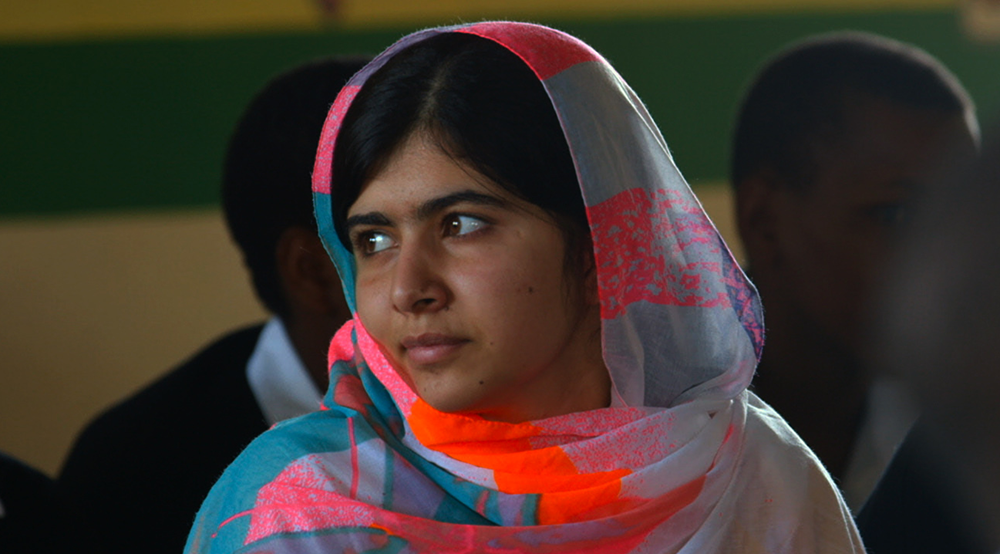
Malala Yousafzai became a household name after being shot for speaking out against educational limits for Pakistani women.
★★★★☆
Malala Yousafzai, or simply Malala, is a name many of us know. The 16-year-old was shot by the Taliban in 2012 while boarding a school bus because of her outspoken criticism of the limited education for women in her native Pakistan. Yousafzai has since been named the youngest-ever recipient of the Nobel Peace Prize, the first winner of Pakistan’s National Youth Peace Prize and one of Time Magazine’s 100 most influential people. She is already a household name , but director Davis Guggenheim’s latest film, “He Named Me Malala,” takes a different approach with her story, following Malala the atypical teenager through the hardships of being a celebrity and fitting in at a high school in Birmingham, England, far away from home. Despite its flaws, “He Named Me Malala,” which premiered Oct. 2, is a story that simply must be told.
Through comic relief, provided by Malala’s charismatic brothers and Malala’s confessions of failing grades and secret celebrity crushes, Guggenheim successfully humanizes a figure we know so well, and at the same time truly know so little about. Though its aims are commendable, the documentary disappointingly does not delve much further into any part of Malala’s life not covered by the media.
As a feminist and strong advocate of gender parity in education, I was extremely excited to see in which light Guggenheim, the Oscar-winning director, would craft Malala’s beautiful story Sadly, it was no more than a puff piece, only outlining the story of a valiant 15-year-old girl who was shot by the Taliban for standing up for women’s education. Instead of exploring Malala’s emotional suffering, the Pakistani criticism of Malala, and her feelings on her new status as a western darling, Guggenheim opts for excessive praise and romanticism. The few times Guggenheim touches on difficult topics he immediately backs down at the first sign of any discomfort from Malala’s end. Notably, a scene mentioning the controversy of Malala’s fame in Pakistan closes as quickly as it starts.
Malala does not need a puff piece. The world knows she is an incredibly courageous girl. What we hoped Guggenheim would give us was the girl away from the cameras, away from the media personality she has become. Scenes that shift between Malala’s and typical western high school experiences to memories of her former family life in Pakistan depicted as Monet-inspired animated flashbacks give special attention to a truer, more personal Malala.
Although Motion Picture Association of America rates “He Named Me Malala” PG-13, one could easily argue the film is pitched to a younger audience. With the depiction of Malala as a high school girl in England who worries about what other girls think of her and who crushes on Roger Federer, the audience is reminded just how young this heroine really is.
That is why despite all the criticism, it is difficult to not recommend “He Named Me Malala,” although it is the first documentary about her life, because of its objective social importance. It is difficult not to become emotionally invested in her cause. She is among only a handful of true agents of change for gender parity within education at a time and place when opposing opinions are criminal enough to be killed over. This film would be a valuable experience for anyone, but especially for those who are unfamiliar with Malala’s story. Malala, who has proven instrumental to the ratification of Pakistan’s first Right to Education Bill, is making tangible changes to a society that, 10 years ago, showed no signs of change. She just has too powerful of a story not to share.



















